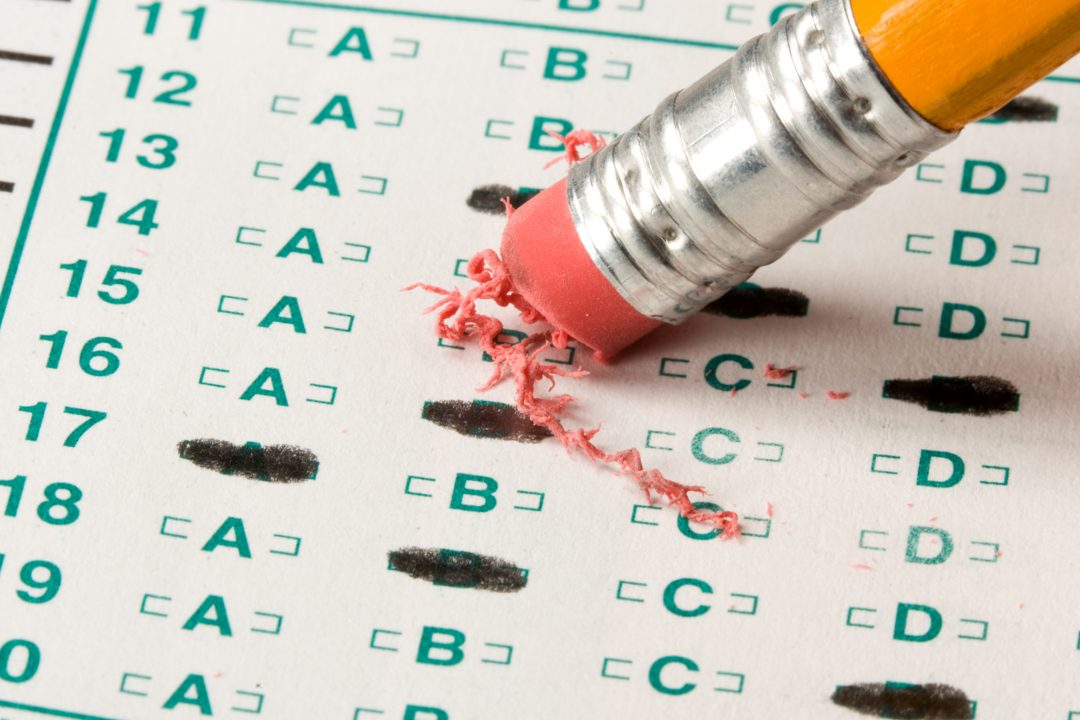This post is part of the #EdublogsClub – a group of educators and edtech enthusiasts that blog around a common theme each week. Simply write a post and share it to join in, or sign up to receive email reminders of each new prompt.
For many, it is that time of year where our students take standardized assessments. Stress is high. The stakes may be higher.
But not all assessments are related to accountability programs or college admissions. No matter how you feel about the world-wide testing culture of students, we all agree that knowing what our students know/learned is invaluable to providing them the best educational opportunities possible.
There is so much here that could be said…
Prompt: Write a post that discusses “assessments.”
It can be your feelings on the accountability climate, informal assessments, assessing student projects, or anything else related to testing, feedback, and measuring learning.
Or maybe a good old-fashioned rant 🙂
Happy blogging!

My SUPER late post for this topic! mrsruiz.net/2017/08/30/assessments/
@mrsruiz2301
You’re on a roll! I left you a comment 🙂
Kathleen
Wait its not to late OK
.
Sorry to be late, but hopefully adding a link now is acceptable. Testing and measuring learning is what my edublog is all about!
http://ontestprep.edublogs.org/2017/04/03/respect-the-test/
Absolutely, it is never too late to join in! 🙂
Combining capacity matrices with resource matrices can promote independence and empowerment in learning.
http://cathtemple.edublogs.org/2017/05/12/matrices-to-empo…g-and-assessment/
I’m late to the party, but here is my post on assessments. https://emilymaxwellmclemore.com/2017/04/23/fine-art-assessments/
While School Librarians almost never give grades to students, we do have assessments that help us determine if students are learning. Here’s my blog post about 3 tools I’ve used to determine the success of my Library Lessons.
http://lookingbackward.edublogs.org/2017/04/18/looking-back-3-assessment-tools-for-the-library/
BrP
Standards and assessment–I’m on a similar theme as last week, and we have parent-teacher conferences (student learning presentations) – thus this post… http://mrsdkrebs.edublogs.org/2017/04/18/standards-and-assessment/
Love your insight that numbers don’t show growth and they stop conversation! I think that’s why its so important to have examples of what students have produced when we have those conferences–and it looks like your school is moving in that direction.
At my middle school we did MAP testing 4 full years before I retired, and after the 1st 2 years of just working out the testing process, teachers were able to use the results for some valid analysis of their lessons and what students were actually learning. The last semester I was there (5th yr testing) we began involving students in the analysis process and that seemed to not only make them take the test more seriously but to also be more proactive in knowing what they needed to pay attention to in class to improve. Hope your experience becomes equally rewarding.
BrP
An alternative to a book report for assessing reading https://readersbeadvised.wordpress.com/2017/04/12/assessments-for-reading-miss-this-aint-english-class/
@ReadersBAdvised
What a treat to be able to work together with a science teacher on a reading assignment and provide such an engaging assessment for students!
Just an idea, but since it’s for a forensic unit, you could, instead of calling it ‘speed-dating’, call it ‘suspect interrogations.’
BrP
I wrote about a quiz I like http://blogs.brighton.ac.uk/nina/2017/04/12/quiz/
As soon as I saw this prompt I immediately thought of this post-http://joprestia.edublogs.org/2015/11/19/understanding-the-cryptic-assessment-task-the-english-learning-proficiency-problem/
Do students really understand the assessment task?
The ‘cryptic assessment task’ …
@JoPrestia
Here’s a post I published a few years ago on thoughts about common core, assessments, and the benefits they bring.
https://www.theedublogger.com/2015/02/18/what-mexico-taught-me-about-common-core-and-standardized-testing/